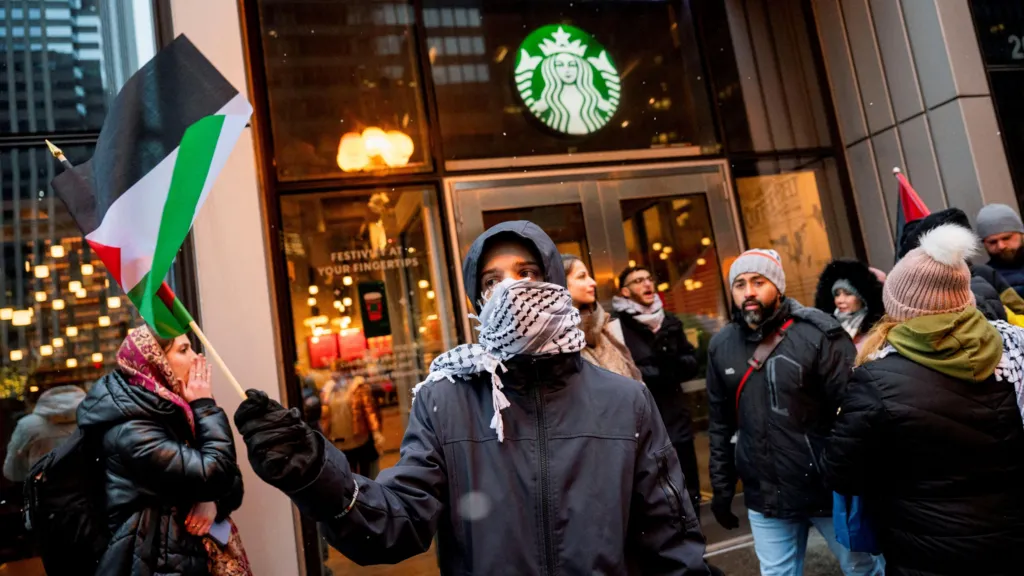US fast-food and coffee chains Starbucks, McDonald’s, and KFC are witnessing lower-than-expected financial results and the closure of numerous failing locations as a result of the boycotts surrounding the Gaza Genocide.
Table of Contents

Starbucks Cuts Forecasts Amid Falling Sales: Why?
Starbucks slashed its predictions for year sales and profits on Tuesday following a dismal fiscal first quarter that witnessed a sharp decline in customer traffic. Sales at cafés that have been open for a year or longer, known as same-store sales, decreased by 4% during the second quarter of the fiscal year. Wall Street experts surveyed by FactSet anticipated a 1% gain.
At the beginning of 2024, sales at the corporation fell 1.8% globally annually. Sales at stores open for at least a year fell 3% in the US, the company’s largest and most significant market; this is the worst decline in years outside of the pandemic and Great Recession. Some of the company’s most devoted clients—rewards members, whose active numbers saw an uncommon 4% decline from the previous quarter—were among those who abandoned ship.
Industry-Wide Decline in Fast-Food Sales
Similar to Starbucks, numerous other major fast-food chains, such as McDonald’s, Wendy’s, and Burger King, have also reported declining sales. In an effort to spark interest, these companies have announced massive price reductions. However, a lot of economists think the company’s sales decline says more about Starbucks than it does about the overall economy. The business was already under strain following a protracted legal battle with union activists, whose demands on wages and working conditions ran counter to the company’s progressive image.
Boycott Impact and Corporate Response
Then, in late October of 2023, Starbucks filed a lawsuit against the union for a social media post that expressed “solidarity” with Palestinians. This lawsuit thrust the union into the discourse surrounding Israel’s war in Gaza and sparked demands for a worldwide boycott that quickly gained momentum.
Starbucks has attributed its negative perception on false information following the release of a statement denouncing violence in the are. In recent months, it has also adopted a different strategy with the union; both parties are now releasing joint press statements asserting progress in contract discussions.
However, according to a Bank of America investigation, the calls for a boycott grew stronger on social media in January and are still there today Additionally, Starbucks indirectly addressed the boycott’s effects in an intriguing part of their financial report when they said, “We anticipate these headwinds experienced in the first quarter of fiscal 2024, although transitory, may continue to impact the balance of our fiscal year. We are still optimistic about our long-term growth and robust business strategy in spite of these short-term challenges.”
Market Capitalization and Share Price Drop
Put another way, the company said that the boycott might have an impact on their business but that it was only a short-term issue that challenged both the boycott and customer behaviour. In the end, it’s clear that Starbucks was affected by the boycott as seen by the share price drop since mid-November, which was approximately 9% lower and resulted in a $11 billion reduction in market capitalization.
Anyhow, it’s crucial to remember that other factors might have also played a role in this decline. Furthermore, the disparities in Q1’s financial results emphasise the boycott’s effects even more. Nevertheless, the crucial question still stands: Will the boycott endure, or is it, as the corporation claims, merely a temporary setback that will soon come to an end?



